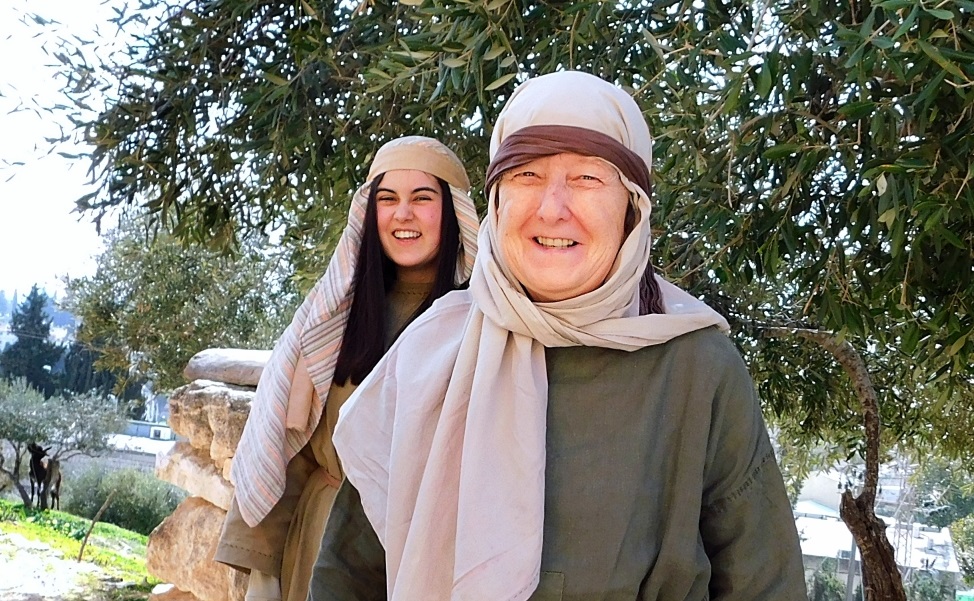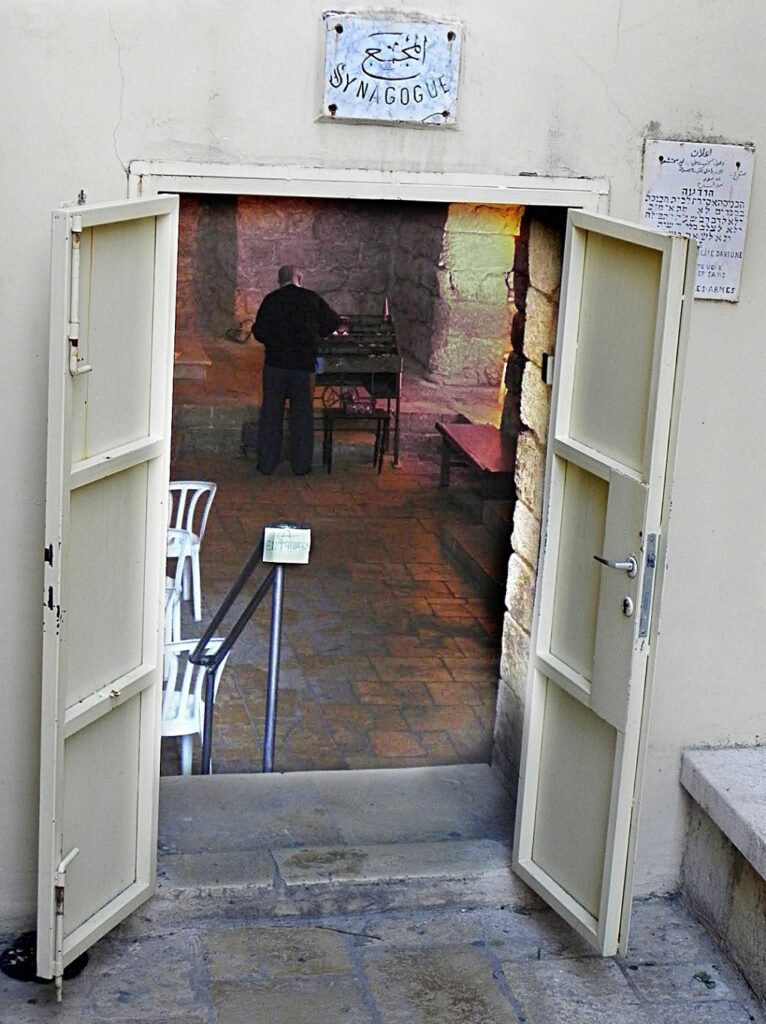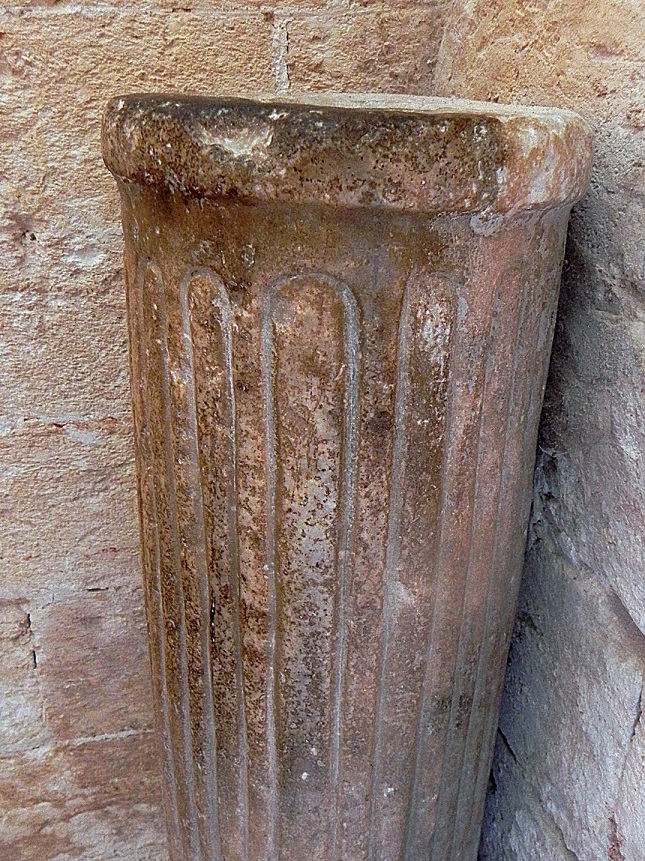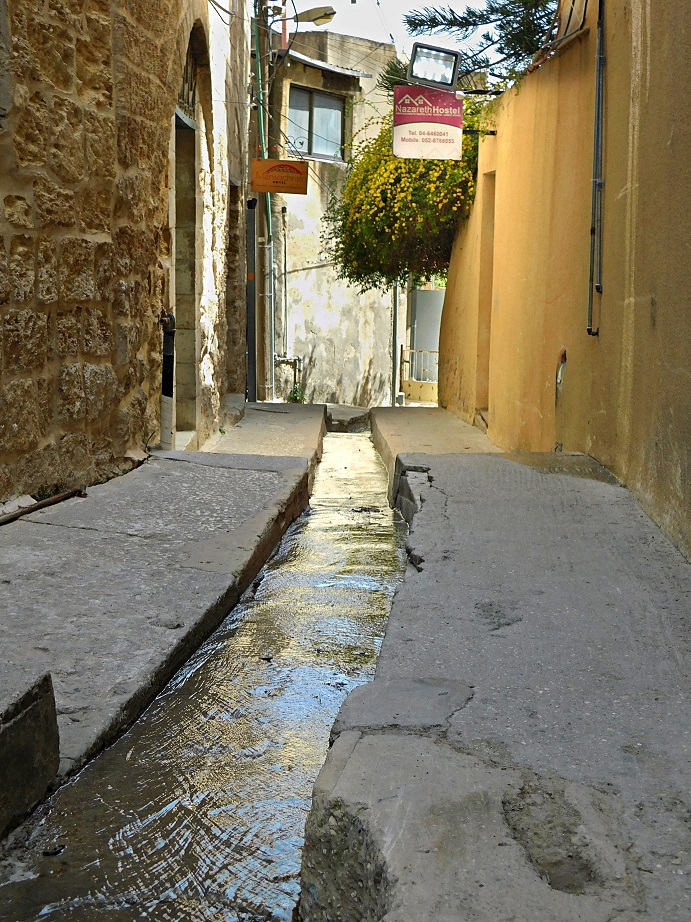#TomorrowIsSunday (EN+ES) | Who is Theophilus for whom Luke wrote the Gospel?


Nazareth Village – an open-air museum in Nazareth, photo credit: s. Amata CSFN
Third Sunday in Ordinary Time, Year C
Sunday 23 January 2022
Gospel of Luke 1:1–4; 4:14–21
EN https://bible.usccb.org/bible/readings/012322.cfm
*
Tercer domingo del tiempo ordinario, año C
Domingo 23 de enero de 2022
Evangelio de Lucas 1,1-4; 4,14-21
ES https://bible.usccb.org/es/bible/lecturas/012322.cfm
1. The Beginning of the Gospel of Luke
“I too have decided, after investigating everything accurately anew, to write it down in an orderly sequence for you, most excellent Theophilus, so that you may realize the certainty of the teachings you have received” – In this sentence at the beginning of the Gospel according to St. Luke there are many threads and much content. If we understand this sentence, we will more easily understand the entire Gospel.
2. Key Words
Theophilus.
This name probably has a double meaning. It is not only the name of a particular person, but it also has a symbolic meaning. Theophilus in Greek means “God-loving” or “loved by God.” St. Ambrose commented it, saying: “The Gospel is written for Theophilus, that is, for him whom God loves. If you love God, then it is written for you.”
So that you may realize the certainty of the teachings you have received.
The Greek word “asfaleia”—from which the word asphalt derives—is used to describe the “certainty” of the teachings. It is thus a strong term indicating the permanence and immutability of Christian teaching flowing from the Gospel.
Teachings you have received.
It literally means the teachings about which he was catechized, since the verb “katecheo” is used in the original Greek.
According to his custom he went into the synagogue on the sabbath day. He stood up to read.
Jesus is the first to catechize. He often went to synagogues or met with people to teach them. In today’s Gospel, Jesus indirectly indicates, that in him the predictions of the prophet Isaiah are fulfilled: “The Spirit of the Lord is upon me, because he has anointed me to bring glad tidings to the poor. He has sent me to proclaim liberty to captives and recovery of sight to the blind, to let the oppressed go free, and to proclaim a year acceptable to the Lord.”
3. Today
Jesus treats each person he meets as a symbolic Theophilus—God’s beloved. Just as he once taught in the synagogues, today he speaks through the Scriptures. The Sunday of the Word of God, which we are celebrating today, is a good opportunity to make a resolution that we will open the Bible every day, and even on a smartphone, as Pope Francis reminds us.
St. Jerome said that ignorance of Scripture is ignorance of Jesus, and so knowledge of Scripture is knowledge of Jesus.
*
1. El comienzo del Evangelio de Lucas
«Yo también, ilustre Teófilo, después de haberme informado minuciosamente de todo, desde sus principios, pensé escribírtelo por orden, para que veas la verdad de lo que se te ha enseñado» – En esta frase del comienzo del Evangelio según San Lucas hay muchos hilos y mucho contenido. Si entendemos esta frase, comprenderemos más fácilmente todo el Evangelio.
2. Palabras clave
Teófilo.
Este nombre tiene probablemente un doble significado. No sólo es el nombre de una persona concreta, sino que también tiene un significado simbólico. Teófilo en griego significa «amante de Dios» o «amado por Dios». San Ambrosio lo comentó diciendo: «El Evangelio está escrito para Teófilo, es decir, para aquel a quien Dios ama. Si amas a Dios, entonces está escrito para ti».
Para que veas la verdad de lo que se te ha enseñado.
La palabra griega «asfaleia» -de la que deriva la palabra asfalto- se utiliza para describir la «verdad» de las enseñanzas. Es, pues, un término fuerte que indica la permanencia e inmutabilidad de las enseñanzas cristianas que emanan del Evangelio.
Lo que se te ha enseñado.
Eso significa literalmente las enseñanzas sobre las que fue catequizado, ya que en el original griego se utiliza el verbo «katecheo».
Entró en la sinagoga, como era su costumbre hacerlo los sábados, y se levantó para hacer la lectura.
Jesús es el primero que catequiza. A menudo iba a las sinagogas o se reunía con la gente para enseñarles. En el Evangelio de hoy, Jesús indica indirectamente que en él se cumplen las predicciones del profeta Isaías: «El espíritu del Señor está sobre mí, porque me ha ungido para llevar a los pobres la buena nueva, para anunciar la liberación a los cautivos y la curación a los ciegos, para dar libertad a los oprimidos y proclamar el año de gracia del Señor».
3. Hoy
Jesús trata a cada persona con la que se encuentra como un Teófilo simbólico: amado de Dios. Al igual que antes enseñaba en las sinagogas, hoy habla a través de las Escrituras. El Domingo de la Palabra de Dios, que celebramos hoy, es una buena oportunidad para hacer el propósito de abrir la Biblia todos los días, incluso en un smartphone, como nos recuerda el Papa Francisco.
San Jerónimo decía que la ignorancia de la Escritura es la ignorancia de Jesús, y así el conocimiento de la Escritura es el conocimiento de Jesús.

The Synagogue Church in Nazareth built on the ruins of the ancient synagogue from Jesus’ time, photo credit: s. Amata CSFN

The Synagogue Church in Nazareth built on the ruins of the ancient synagogue from Jesus’ time, photo credit: s. Amata CSFN

The Synagogue Church in Nazareth built on the ruins of the ancient synagogue from Jesus’ time, photo credit: s. Amata CSFN

The Synagogue Church in Nazareth built on the ruins of the ancient synagogue from Jesus’ time, photo credit: s. Amata CSFN

The oldest part of Nazareth, photo credit: s. Amata CSFN



Dodaj komentarz